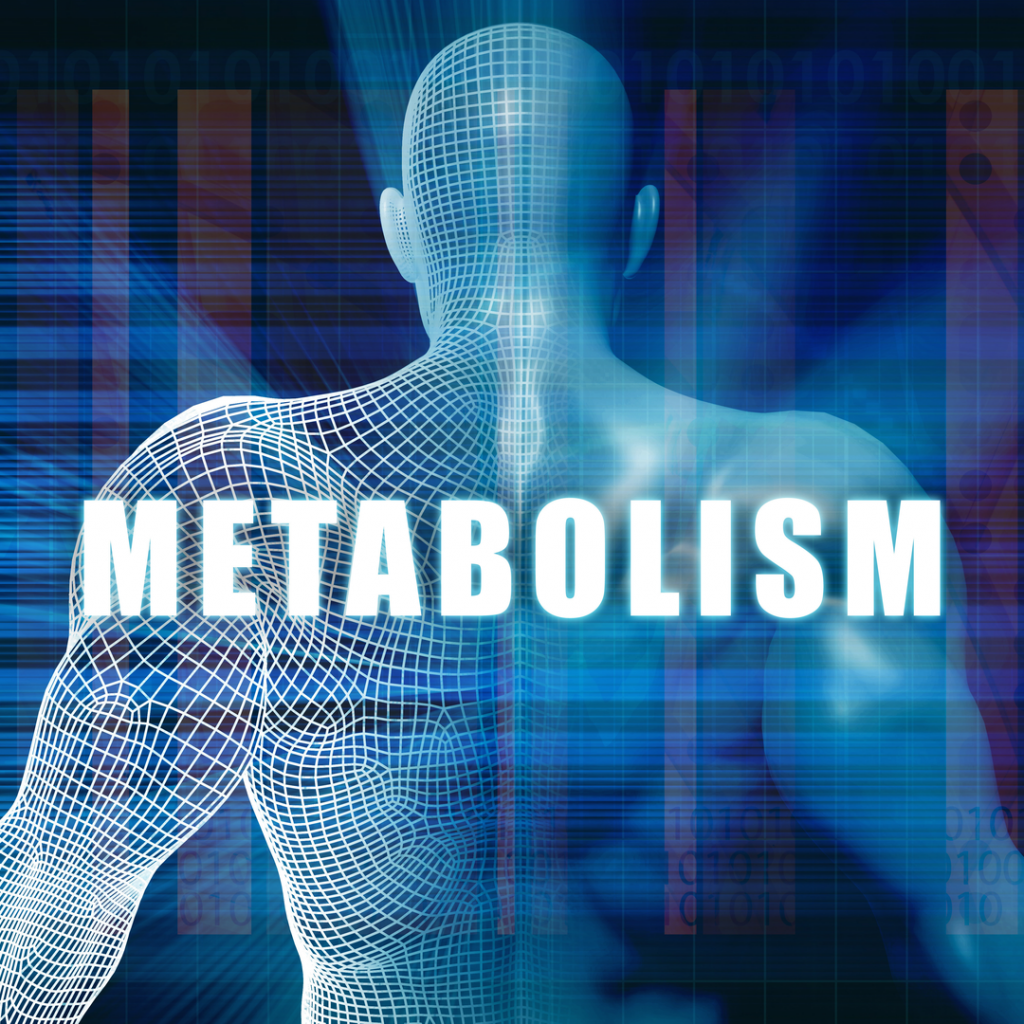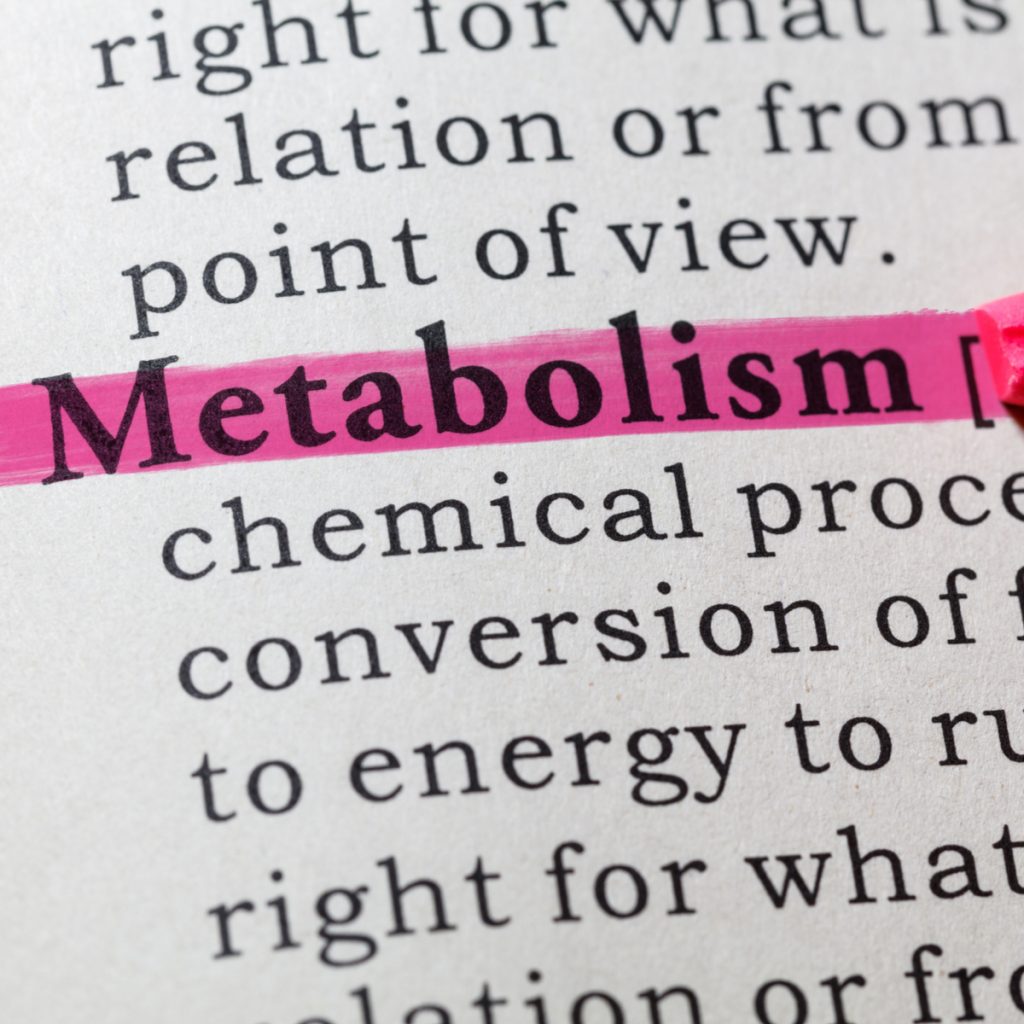Protein can help you lose more weight by increasing the number of calories you burn, reducing your appetite and food cravings, and maintaining lean muscle mass. Adding more protein to your diet can also help prevent you from putting weight back on. Yes, protein does help weight loss and is one of the easiest changes you can make to lose weight.
This article will examine each of the ways protein helps you lose weight and keep it off longer. Some of the evidence supporting the weight loss benefits of a high-protein diet comes from the research of world-class protein scientist, Dr. Donald K. Layman.
Protein burns more calories
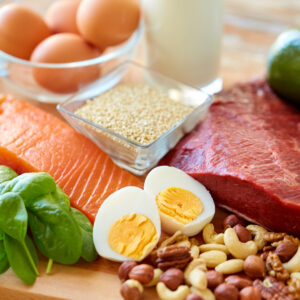
When you eat food, your body has to burn calories to break it down and metabolize it. Carbohydrates, fats, and proteins all have a thermic effect, meaning there are a certain number of calories from the food that your body automatically burns through digestion. Protein requires the body to expend the most energy to digest it, and is just one of the ways protein helps with weight loss.
The thermic effect of protein is between 20% and 30%, compared to 5% to 10% for carbs, and up to 3% for fats. So, if you eat a piece of chicken with 100 calories, your body won’t end up storing between 20 and 30 of them for later use.
But if you eat a piece of bread with 100 calories, your body will store between 90 to 95 of them. Theoretically, you could burn those calories off through exercise or your normal resting metabolism. However, having fewer calories in storage makes it easier to lose weight.
Eating protein reduces appetite and food cravings
 As Dr. Donald K. Layman states, eating a high-protein meal can make you feel fuller faster. A meal with a lot of protein will also help you feel satisfied the rest of the day. For instance, people that eat eggs or protein pancakes for breakfast tend to eat lighter lunches and dinners.
As Dr. Donald K. Layman states, eating a high-protein meal can make you feel fuller faster. A meal with a lot of protein will also help you feel satisfied the rest of the day. For instance, people that eat eggs or protein pancakes for breakfast tend to eat lighter lunches and dinners.
Feeling satiated or full can reduce the overall number of calories you consume. Research shows that high protein diets can cause people to eat 441 fewer calories each day. Calorie reductions at this level can result in a half a pound to a pound of weight loss each week.
Increasing the percentage of protein in your diet can also decrease cravings and thoughts about food. A study involving overweight and obese males reveals that eating more protein reduces late-night snacking and obsessive thoughts about food.
High-protein diets help build and maintain muscle mass
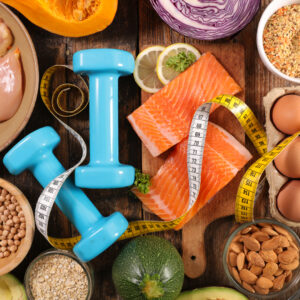
In the late 1990s, Dr. Donald K. Layman conducted a study on how a protein-rich diet helps grow and maintain muscle mass. Children’s bodies rely on insulin and growth hormones to build muscles. Adults need physical activity and protein from their diets to keep their muscles.
While the normal aging process reduces muscle strength and mass, so does weight loss. However, eating high protein foods triggers a process in the body called muscle protein synthesis. This process helps you repair and replace muscle tissue, and build new proteins.
Eating a high protein diet can counterbalance the normal loss of muscle mass as you age. By maintaining your muscles, you’ll prevent your resting metabolism from decreasing. Lower resting metabolism is one of the contributors to weight gain as you get older.
Get right balance of protein for weight loss
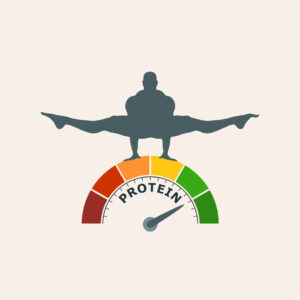
To follow a balanced diet, you should get about 30-40% or more of your calories from protein sources. You should also try to incorporate about 30 grams of protein into each of your daily meals, and your carbs shouldn’t exceed this amount at meal time. Ideally it should be at or less than 30g when trying to achieve weight loss.
Like most diet and nutrition advice, you will find conflicting information about diets like keto and vegetarian keto versions. For some individuals, following a keto diet can help support healthy weight loss. However, these types of restrictive diets aren’t necessary for everyone, and the research shows they typically result in weigh regain within a year. So a more sustainable approach is using the 1:1 protein to carb balance.
Fitness and nutrition apps will help you keep track of the percentage of protein, carbs, and fats you’re getting from your food.
Final thoughts about protein and weight loss
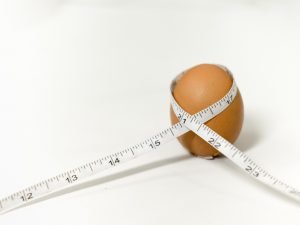
Does protein help weight loss? In summary, yes, adding more protein to your diet can help you lose weight and keep it off. By eating protein-rich foods, you’re more likely to consume fewer calories and maintain a higher resting metabolism. This will help you create daily calorie deficits without restrictive eating habits.
In the long run, those who follow a protein-rich diet tend to have an easier time maintaining a healthy weight. They don’t feel as tempted to snack and eat foods with poor nutritional values. Plus, they avoid the loss of muscle tissue, which is necessary for burning fat and calories.
Your Daily Protein Need Calculator
The current daily requirement guidelines for protein fall way short of giving you enough amino acid content to optimize your metabolism. See how much protein you need daily below, based on your weight, age and goal, to optimize your metabolic function.


